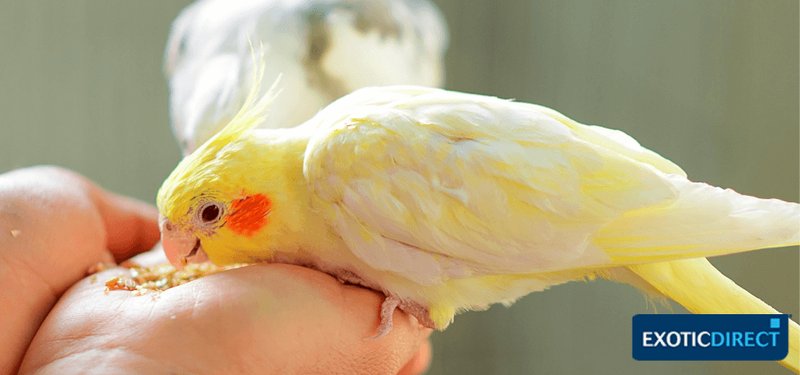
Imagine feeding your cockatiel as preparing a colorful plate of food for a picky child. You’d want to offer variety—a little bit of this, a little bit of that—so they enjoy mealtime. Similarly, a balanced diet for cockatiels includes seeds, pellets, fruits, and veggies. So, let’s dive into what cockatiels eat on a daily basis, how to create a feeding schedule, and tips to ensure your little buddy is getting all the essential nutrients.
The Basics of a Cockatiel’s Diet
Cockatiels are primarily seed eaters in the wild, but their diet should be more varied when kept as pets. You might be wondering, “What does this mean for my cockatiel?” Here’s the thing: while seeds can be a tasty treat, they shouldn’t be the sole part of their diet. Instead, a mix of high-quality pellets, seeds, fresh fruits, and vegetables will keep them healthy and happy.
Cockatiel pellets are designed to provide balanced nutrition. They’re packed with vitamins and minerals that a seed-only diet might lack. Think of pellets as the multi-vitamin of the bird world—convenient and essential! You can find various brands at pet stores, but make sure to look for pellets that are specifically formulated for cockatiels.
Daily Feeding Schedule
Creating a daily feeding schedule is essential for your cockatiel’s health. A consistent routine helps them know when to expect food, making them feel secure. Here’s a simple schedule you can follow:
- Morning: Fill their food bowl with fresh pellets and some seeds. Aim for about 70% pellets and 30% seeds.
- Midday: Offer fresh fruits and vegetables—this could include leafy greens like kale or small pieces of apple.
- Evening: Refill their seed bowl if it’s running low and remove any uneaten fresh food to keep their environment clean.
It’s a good idea to be consistent with the times you feed your cockatiel. This way, they’ll look forward to mealtime and develop a routine that makes for a happy bird.
What Foods Are Safe for Cockatiels?
You might be curious about which specific fruits and vegetables to offer. Here’s a quick list of safe foods that cockatiels can enjoy:
- Fruits: Apples (without seeds), bananas, strawberries, and oranges are all great choices.
- Vegetables: Carrots, broccoli, spinach, and peas can be offered raw or cooked, but make sure to avoid any seasoning.
- Grains: Cooked brown rice, oats, and quinoa can be a nice addition to their diet.
Remember, fresh foods should be washed thoroughly and cut into small, manageable pieces. This makes it easier for your cockatiel to eat and enjoy their meals.
Foods to Avoid
As important as knowing what to feed your cockatiel is understanding what to avoid. Some foods can be harmful or even toxic to birds. Here are some things you should never give your cockatiel:
- Chocolate: This is a big no-no for all pets!
- Caffeine: Keep coffee and tea away from your feathered friend.
- Avocado: Even small amounts can be toxic to birds.
It might seem overwhelming, but keeping these foods away from your cockatiel is just as crucial as providing the right ones. Always double-check before offering something new!
Importance of Fresh Water
Water is as vital to your cockatiel’s diet as food itself. Make sure to provide fresh, clean water daily. Change the water in their bowl in the morning and afternoon to keep it fresh. Birds are known for being messy, so check for any debris or droppings that might end up in the water.
You might also consider using a water bottle. These help keep the water clean and encourage your bird to stay hydrated. Just be sure to clean the bottle regularly to avoid algae buildup.
Special Treats and Training
Just like any pet, cockatiels love treats! These can be great for training sessions or rewarding good behavior. Treats can be small pieces of their favorite fruits or even commercial bird treats available at pet stores. Remember, though, treats should not make up more than 10% of their daily intake. Overindulging can lead to health problems.
Using treats during training is a fun way to bond with your cockatiel. You can teach them simple tricks or encourage them to step up onto your finger or a perch. Keep sessions short and positive; this will make your cockatiel look forward to spending time with you.
Monitoring Your Cockatiel’s Weight and Health
Feeding your cockatiel properly goes hand in hand with monitoring their health. Keep an eye on their weight and body condition. If you notice any sudden changes, it’s best to consult with a veterinarian who specializes in birds. Have regular check-ups to ensure your cockatiel is thriving.
A healthy cockatiel should be alert, active, and playful. If they show signs of lethargy or decreased appetite, it’s essential to identify the cause quickly. Small changes in diet or environment can affect birds more than we might think.
In conclusion, feeding your cockatiel involves understanding their needs and providing variety. With a balanced diet of pellets, seeds, fruits, and vegetables, along with fresh water, you’ll contribute to your bird’s happiness and longevity. So, roll up your sleeves, get ready to prepare some yummy meals for your feathered friend, and enjoy the chirpy companionship of your cockatiel!
